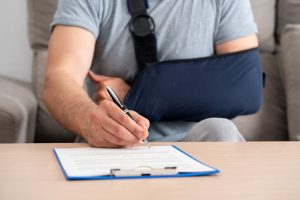When seeking justice for a personal injury, the support of a proficient personal injury lawyer in Ann Arbor can significantly impact the outcome of your case. The foundation of a successful personal injury claim often lies in the strength and quality of the evidence presented.
Evidence plays a pivotal role in personal injury cases. It substantiates your claims, proves liability, and demonstrates the extent of your injuries and damages. Without solid evidence, even the most clear-cut cases can falter.
Photographic and Video Evidence
Photographs and videos taken at the scene of the accident can be compelling pieces of evidence. These visual records can capture the conditions and circumstances surrounding the incident, such as the position of vehicles, road conditions, traffic signals, and weather. Additionally, images of your injuries taken immediately after the accident can provide a clear visual of the harm suffered, which can be very persuasive to a jury.
When an accident occurs, it is crucial to document the scene as thoroughly as possible. Use your smartphone to take multiple photos from different angles. Ensure to capture any visible damages, skid marks, road signs, and other relevant details. Videos can provide a comprehensive view of the scene and might capture nuances that photos cannot. This documentation should be done promptly to prevent changes or tampering that might weaken your case.
Medical Records and Reports
Medical documentation is a cornerstone of personal injury evidence. These records provide a detailed account of your injuries and the treatments you received. They also serve to link your injuries directly to the accident, which is essential in proving your case.
After an accident, seeking immediate medical attention is imperative, even if injuries do not seem severe. Some injuries, such as concussions or internal bleeding, may not manifest symptoms right away. A prompt medical examination ensures that all injuries are documented from the outset. Follow-up visits and treatments should also be meticulously recorded, as they show the progression and impact of your injuries over time.
Witness Statements
Witnesses can offer objective accounts of the accident, providing details that you might have missed or be unaware of. Their testimonies can corroborate your version of events and add credibility to your claim.
At the accident scene, try to collect contact information from any witnesses. Ask them for a brief statement of what they saw, heard, or experienced. Later, your attorney can take formal statements. Witnesses’ perspectives can provide a third-party view that supports your claim and can be crucial during negotiations or trial.
Police Reports: Obtaining the Police Report
A police report is an official document that includes vital details about the accident. It often contains the responding officer’s observations, notes on the conditions, and sometimes their opinion on who was at fault. This report can be a critical piece of evidence in your case.
Ensure you contact the police immediately following an accident. The report they file will become part of the official record of the incident. Obtain a copy of the police report as soon as it is available, and review it for accuracy. If there are any discrepancies, inform your attorney so they can address them.
Expert Testimonies: Utilizing Expert Witnesses
Expert witnesses can provide specialized knowledge that supports your case. They can explain technical aspects of the evidence or provide professional opinions on the extent of your injuries and future medical needs.
Depending on the specifics of your case, different experts might be required. Medical experts can speak to the severity of your injuries and your prognosis, while accident reconstructionists can provide insights into how the accident occurred. Their testimonies can help clarify complex issues for the jury and strengthen your case.
Personal Journals and Diaries: Writing a Personal Journal
Keeping a personal journal detailing your physical and emotional experiences after the accident can provide compelling evidence of the impact on your daily life. This personal account can illustrate the non-economic damages you have suffered.
Start a journal immediately after the accident. Record your pain levels, emotional struggles, and the ways your injury affects your daily activities. Consistent entries can paint a vivid picture of your suffering and help convey the full extent of your damages to the court.
Conclusion
In a personal injury case, the strength and presentation of your evidence are paramount. From photographic evidence and medical records to witness statements and expert testimonies, each piece plays a vital role in proving your claim. Thorough documentation of financial losses and personal impacts further bolsters your case, helping to ensure a favourable outcome. By meticulously gathering and presenting compelling evidence, you significantly enhance your chances of securing the justice and compensation you deserve.






















